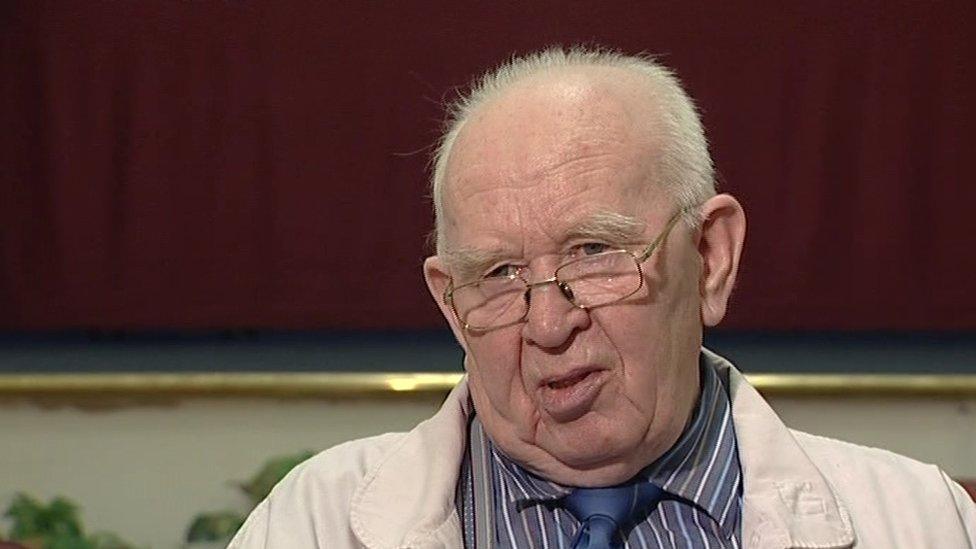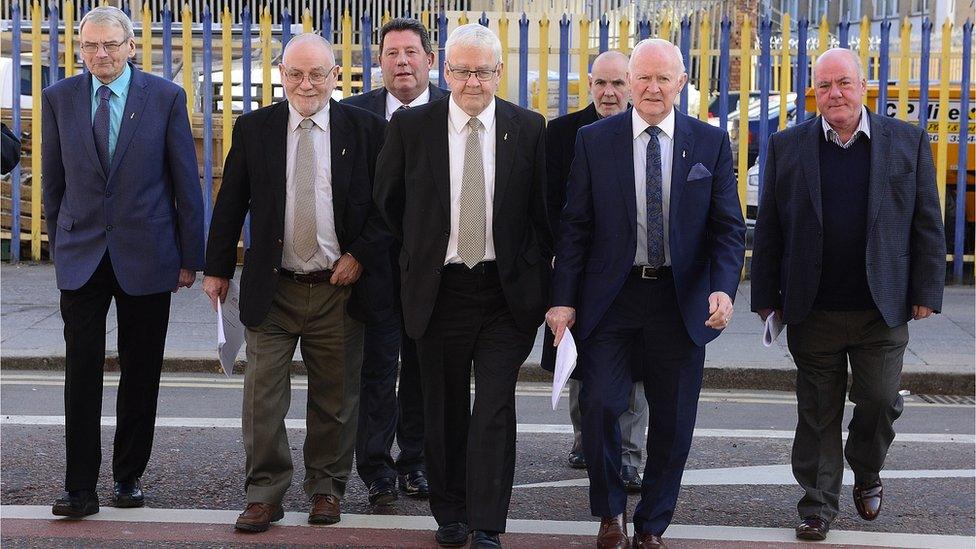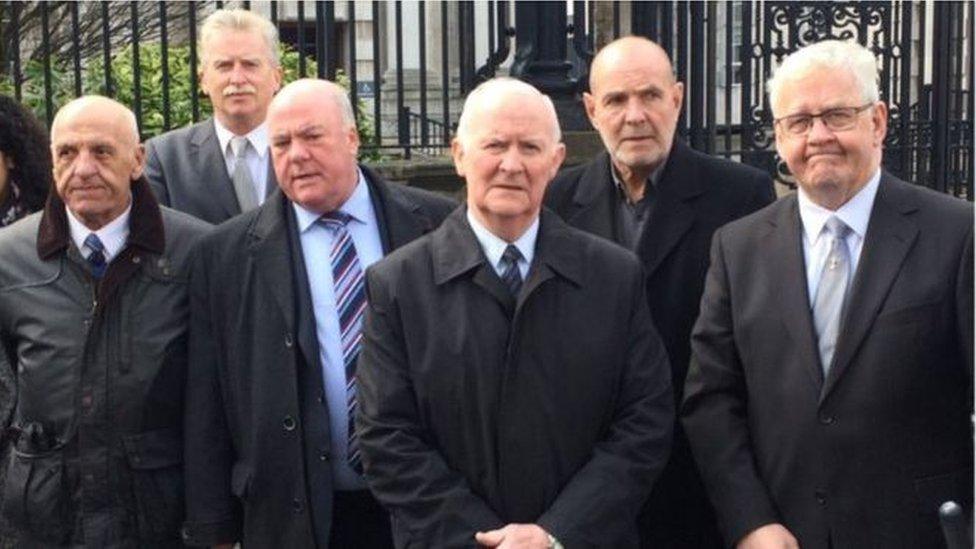Civil rights activist Paddy Joe McClean dies, aged 86
- Published

Paddy Joe McClean speaking to BBC News NI in 2011
The civil rights activist Paddy Joe McClean, has died aged 86.
A teacher and activist, he died at his home in Beragh, County Tyrone, on Friday.
Paddy Joe McClean was the oldest surviving member of the group known as the 'Hooded Men'. The 14 men allege they were subjected to torture by the Army in 1971.
Mr McClean was interned in Magilligan, despite having spoken out against violence.
'Gentleman'
Speaking to BBC News NI in 2011 he said: "I was not, never was, involved in the the IRA or what's broadly known as the Republican movement.
"I'm inclined to the view that when internment was decided upon, the government forces, police or whoever it was, decided that all protestors should be picked up."
Liam Shannon, who was also one of the hooded men, described him as a "gentleman".
"He was a tower of strength," he said.
"His own family just adored him and if you knew the man you can understand why. He was a lovely natured person.
"He was a gentle person. Not only will we miss him, but the community will miss him," he added.
Allow X content?
This article contains content provided by X. We ask for your permission before anything is loaded, as they may be using cookies and other technologies. You may want to read X’s cookie policy, external and privacy policy, external before accepting. To view this content choose ‘accept and continue’.
In 1978, the European Court of Human Rights had held that the UK had carried out inhuman and degrading treatment, but fell short of defining this as torture.

What was internment?
Northern Ireland Prime Minister Brian Faulkner used the Special Powers Act to introduce internment without trial for those suspected of being involved in violence on 9 August 1971.
During the first morning of Operation Demetrius, 342 people were arrested. More than 100 were released two days later as it became increasingly clear that the RUC's intelligence, based on records more than a decade old, was arguably useless.
Most of the new IRA leadership had escaped army raids by hiding in safe houses or heading south of the border.
Internment stayed in place and by the eve of direct rule from London in 1972, the internees numbered 924.


The so-called hooded men have claimed they were tortured by the Army in 1971
The 14 hooded men said they were forced to listen to constant loud static noise; deprived of sleep, food and water; forced to stand in a stress position and beaten if they fell.
The men also said they were hooded and thrown to the ground from helicopters - despite being at near ground level, they had been told they were hundreds of feet in the air.
- Published9 August 2011
- Published20 March 2018
